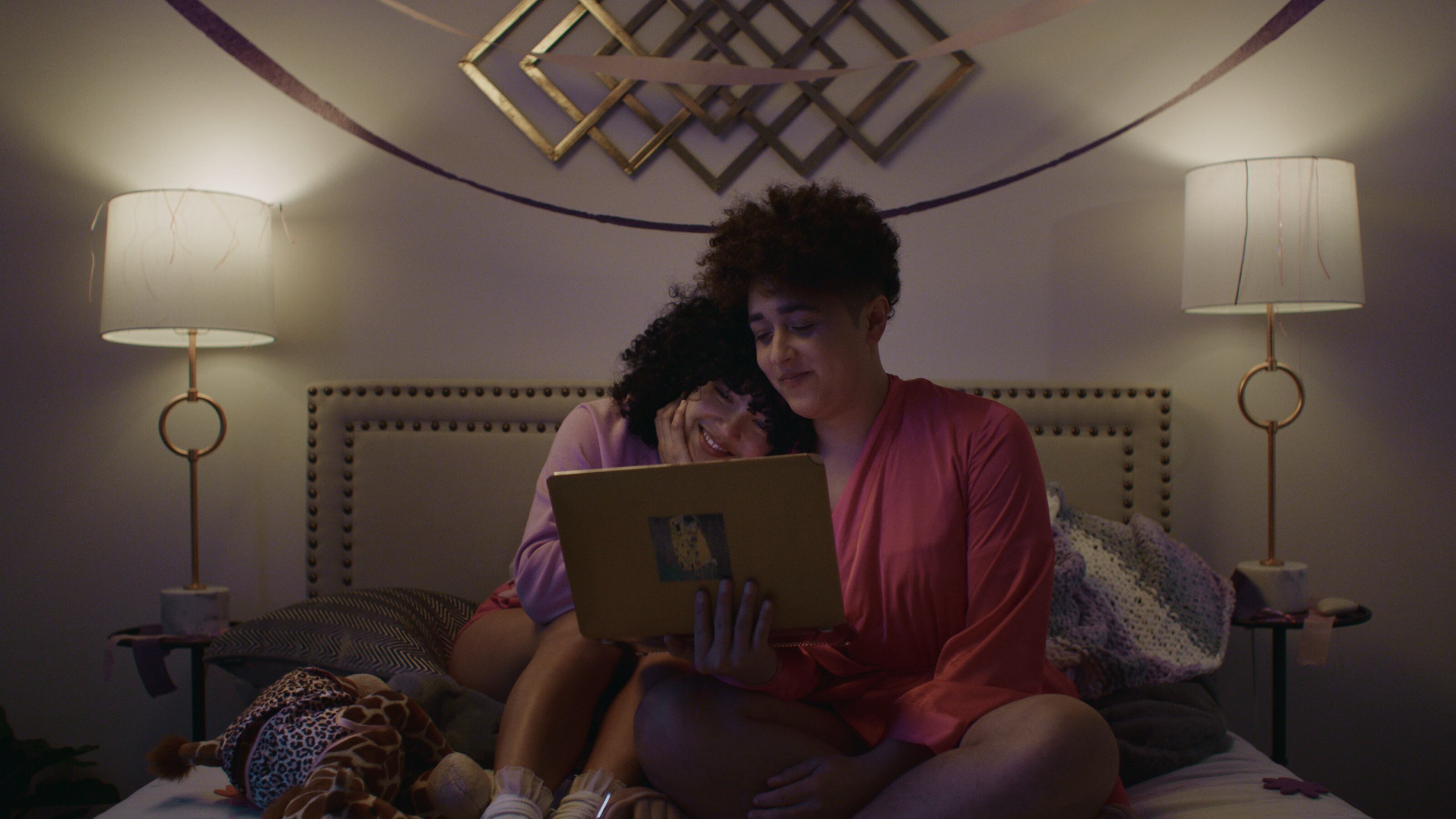Wedding movies are really about fear-based conflict. The Mamma Mia series nails family strife, 27 Dresses covers fear of singledom, and even mainstream titles like The Birdcage and Jenny’s Wedding explore the tensions of integrating homophobic family members with openly queer ones. But how many wedding movies feature unions between transgender or nonbinary people, let alone their pre-honeymoon high jinks?
Filmmaker and producer Miracle Valenzuela Everett, 29, works for more than surface representation. On their newest film, A Wedding to Diego, Valenzuela Everett—also a licensed therapist—riffs on the tried and true marriage movie plot while asking important existential questions, like what happens in a relationship when someone’s self-hurdles are lined up down the aisle of their wedding march. A Wedding to Diego premieres Saturday, Feb. 8, at Portland State University’s 5th Avenue Cinema, where Valenzuela Everett will attend a post-screening Q&A with soundtrack composer Roberto Martinez, hair and makeup artist Greyson Murray and producer Morgan Raymond.
The film—which features predominantly Spanish dialogue—follows the relationship of Latine nonbinary sober writer Lena (Amanda Zenaida) and their trans-masculine fiancé, Diego (Ari Moora), in Portland. Lena is in their healing era, while Diego very much is not. Thus, Diego offers a love story as old as time: a sober person knee deep in a relationship with someone knee deep in navigating their relationship with addiction, the lovers’ trudge toward eternal partnership tested by the juxtaposition of their realities. Except, with nonbinary and transgender actors in all-too-rare starring roles.
“Lena’s character is a lot more laid back. They’re practicing a lot of healing modalities right now and kind of trying to slow down in their life,” Valenzuela Everett says. “But [Diego] is kind of like a hot mess, where they are beautiful and artistic and interesting, but they can be very sporadic and don’t always know what they’re going to do.”
Valenzuela Everett was inspired to write the semiautobiographical film through a series of dreams that began eight years ago. But it wasn’t until 2020, when they had top surgery—a gender-affirming procedure that reshapes the chest—that a wave of creative energy smacked them over the head. Valenzuela Everett stitched together their dream logic by pulling from their own experiences with alcoholism, codependency, botched relationships and struggling partners.
Diego, for example, was inspired by an ex-partner of Valenzuela Everett’s. Though their ex and Diego have different “bad habits,” writing the couple’s struggles in the script proved both familiar and cathartic.
“I felt that making the lead characters have those be the main issues they’re struggling with would be familiar for me,” Valenzuela Everett says. “And what I always say is, in this film, Diego is not a bad person. He’s just going through something and doesn’t know how to handle it, and it’s affecting other people.”
For Valenzuela Everett—an Austrian, Mexican, Apache and Yaqui filmmaker—representation is the impetus of their creative endeavours. Rarely do audiences see competent depictions of addiction interwoven with trans or nonbinary romance, and even rarer do they see any of these stories with a nonwhite principal cast. Valenzuela Everett knew they had to fulfill their dream of making a representative film, but they were also inspired to keep going by Storm Miguel Flores, their mentor. Flores pointed out the necessity in having people a part of those communities creating for them.
“He had said something about how there’s already been like so many movies and TV shows about trans folks not written by trans folks, and how that has created a certain amount of damage to the narrative surrounding the community,” Valenzuela Everett says. “We’re also trying to repair some of that damage and say, actually, this is what our experience is like or this is what the actors’ experience is like.”
During their separate bachelorx parties, Lena and Diego have a dysfunctional phone call regarding their wedding. As Diego drunkenly professes his desire to keep the ceremony small and intimate to a sober Lena, the call drops. Lena is left with the troublesome impression that Diego is getting cold feet, in addition to perhaps being on drugs and certainly being drunk. The couple, and viewers, are left wondering if they will make it down the aisle.
A Wedding to Diego reinforces that trans people can tell their own visually and narratively compelling stories, reminding audiences that trans and cisgender peoples’ experiences are not alien, and that trans people exist within all communities. Valenzuela Everett wants the characters to feel relatable and hopes that the Portland queer community sees some of themselves onscreen.
“It’s not necessarily like this extremely happy story that these two people are perfect for each other, but it’s a very real story. And the friendships are so powerful in this film,” Valenzuela Everett says. “I would hope that people can relate to these characters, even if they don’t identify in the same way as them.”
SEE IT: A Wedding to Diego at 5th Avenue Cinema, 510 SW Hall St., 503-725-3551, aweddingtodiego.com. 6 pm Saturday, Feb. 8. $10.
